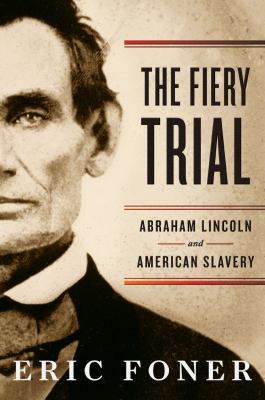
by Eric Foner
Choice As a historical subject, Abraham Lincoln has attracted thousands of books and articles; just the books on his Emancipation Proclamation alone would fill many a library shelf, yet more books on Lincoln appear every year. Foner (Columbia) adds his own interpretation of Lincoln's political career, with an especially careful look at the process of abolishing slavery. Instead of a modern interpretation of Lincoln's actions, Foner places the emancipation discussion in the context of contemporary politics, with Lincoln as only one of a number of players in the debate. Foner describes the various implications and nuances of freeing the slaves, including the contentious issues of colonization, African American military service, and the future rights of former slaves in the war's aftermath. The pace of the adeptly written book does not exceed the vast amount of information presented, leaving readers with a complete yet understandable narrative of momentous historical events. The result is a highly readable and comprehensive view with some information that advanced readers might already know, but that is presented in a different viewpoint. Summing Up: Highly recommended. Upper-division undergraduates and above. S. J. Ramold Eastern Michigan University Copyright American Library Association, used with permission. Library Journal Foner (DeWitt Clinton Professor of History, Columbia Univ.; Reconstruction), our most distinguished scholar assaying the meaning of American freedom, ventures boldly into the tangled study of Lincoln's relationship with slavery and race to produce an original and compelling argument. Based on a close rereading of Lincoln documents and careful consideration of the changing contexts in which Lincoln thought and acted, Foner shows that Lincoln's relationship to slavery was sometimes contradictory in the details but persistent in his belief that slavery must somehow die so that the nation might live. Foner argues that Lincoln was sometimes conflicted on race but that antislavery sentiments shaped his policies as much as wartime demands for party unity, border-state loyalty, and public support affected his move toward emancipation and arming blacks. To Foner Lincoln both operated within and transcended the politics of slavery in his day. His capacity for growth was the lodestar of his greatness as an instrument for freedom. VERDICT In the vast library on Lincoln, Foner's book stands out as the most sensitive and sensible reading of Lincoln's lifetime involvement with slavery and the most insightful assessment of Lincoln's-and indeed America's-imperative to move toward freedom lest it be lost. An essential work for all Americans.-Randall M. Miller, Saint Joseph's Univ., Philadelphia (c) Copyright 2010. Library Journals LLC, a wholly owned subsidiary of Media Source, Inc. No redistribution permitted.
(c) Copyright 2010. Library Journals LLC, a wholly owned subsidiary of Media Source, Inc. No redistribution permitted. Publishers Weekly A mixture of visionary progressivism and repugnant racism, Abraham Lincoln's attitude toward slavery is the most troubling aspect of his public life, one that gets a probing assessment in this study. Columbia historian and Bancroft Prize winner Foner (Free Soil, Free Labor, Free Men) traces the complexities of Lincoln's evolving ideas about slavery and African-Americans: while he detested slavery, he also publicly rejected political and social equality for blacks, dragged his feet (critics charged) on emancipating slaves and accepting black recruits into the Union army, and floated schemes for "colonizing" freedmen overseas almost to war's end. Foner situates this record within a lucid, nuanced discussion of the era's turbulent racial politics; in his account Lincoln is a canny operator, cautiously navigating the racist attitudes of Northern whites, prodded-and sometimes willing to be prodded-by abolitionists and racial egalitarians pressing faster reforms. But as Foner tells it, Lincoln also embodies a society-wide transformation in consciousness, as the war's upheavals and the dynamic new roles played by African-Americans made previously unthinkable claims of freedom and equality seem inevitable. Lincoln is no paragon in Foner's searching portrait, but something more essential-a politician with an open mind and a restless conscience. 16 pages of illus., 3 maps. (Oct.) (c) Copyright PWxyz, LLC. All rights reserved
(c) Copyright PWxyz, LLC. All rights reserved |